Looking southward: Arts and Sciences faculty offer expertise in Caribbean, Latin American studies
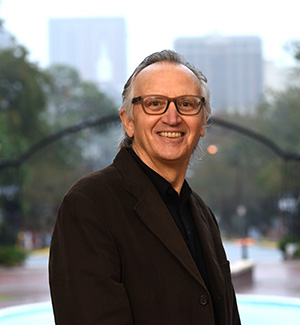
Languages and Linguistics Department Chair
When members of your faculty boast a strong profile in Caribbean and Latin American studies, you play on their strengths to build programs that will earn national and international acclaim. That’s exactly what Florida State University’s College of Arts and Sciences has done.
Most of the college’s faculty members who are focused on the Caribbean and Latin America are housed in the Department of Modern Languages and Linguistics, but others, in the departments of Anthropology, English and History, also offer informed perspectives on various aspects of the region. Working across disciplines and specializations, all of these researchers are focusing a spotlight on the Francophone and Hispanic Caribbean and Latin America from myriad perspectives, including literary and cultural studies, comparative literature, history and linguistics. At the same time, they are advancing the reputation of the college as a recognized center of study on this region, says Modern Languages and Linguistics department chair Mark Pietralunga.
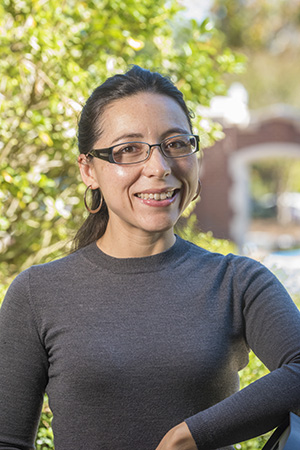
the Department of Modern Languages and Linguistics
“Florida’s proximity and its strong cultural, social and economic ties to the Latin American and Caribbean world have been a motivating force in building programs of strength in these areas,” Pietralunga said. “Our strategy (in Modern Languages and Linguistics) has been not only to create premier programs in Francophone and Hispanic Caribbean and Latin America, but also to seek opportunities for collaboration among these areas of strength.
“We see our department as a conduit to foster interdisciplinary connections and highlight cross-specialty collaborations,” he said. “The added benefit of housing in our department the world-class Winthrop-King Institute for Contemporary French and Francophone Studies allows us to showcase and promote our faculty’s rich and diverse scholarship.”
Faculty in the modern languages department’s French and Spanish programs are fascinated by the dynamics of social, cultural and diverse cultural identities of the island nations that make up a region rich in history and culture, and they are eager to share their knowledge and enthusiasm.
“Caribbean historians often point out that the Caribbean region has served as a site of social experimentation historically, that the modes of production on the plantation, for example, become a template for the division of labor that is central to Britain’s industrial revolution,” said Jeannine Murray-Román, an assistant professor of French and Spanish who specializes in comparative Caribbean literatures and cultures.
“The philosopher Edouard Glissant from Martinique makes an argument about scale that I think is so intriguing: that because many of the islands are so small, the impacts of natural and economic disasters are quickly visible,” she said. “These same effects might escape notice in the larger land masses, but they’re part of the same continuum. So if the Caribbean archipelago experiences global changes both before and to a more heightened degree than the continents, it’s in our interest to pay close attention to what’s happening there as a forerunner of what will be taking place globally as well.”
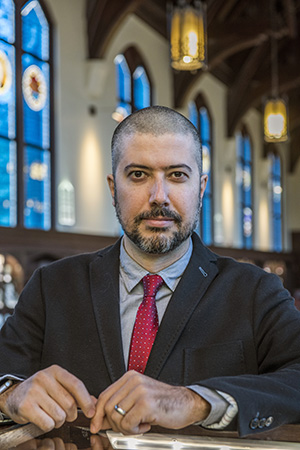
of English
FSU’s Department of English recently hired John Ribó, whose research focuses on contemporary Latin literature and popular culture. The assistant professor said that for him, the ties that bind the Caribbean and the United States are personal.
“The Dominican and Cuban branches of my family tree came together in Ybor City, Tampa,” Ribó said. “In Florida — a state with sizable communities with roots in the Caribbean, Central America and Latin America — stories like mine are quite common, but not always accurately represented as fundamental to the fabric of our state and nation. My research is driven by the desire to correct these oversights, and my classes provide students opportunities to learn about the diverse origins of Florida and the U.S.”
As a scholar, Ribó added that he is fascinated by how the history of the Caribbean informs contemporary U.S. culture.
“I’m currently completing my first book, ‘Haitian Hauntings,’ which traces the genealogy of Haiti’s spectral presence in contemporary U.S. Latin literature, music and popular culture,” he said. “In it, I argue that the work of contemporary writers such as Edwidge Danticat, Junot Díaz, Achy Obejas and Ana Lydia Vega exhumes Haiti’s revolutionary history to exorcise specters of coloniality that haunt Dominican-American, Cuban-American and Puerto Rican communities.”
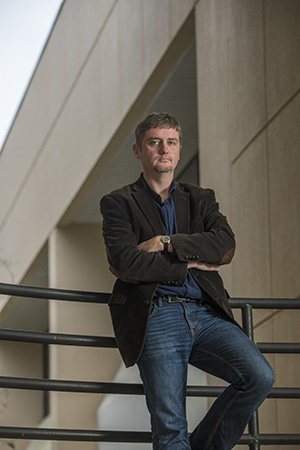
Department of Anthropology
Studying Haiti from a different perspective is Vincent Joos, an assistant professor who recently joined the Department of Anthropology.
“I am a cultural anthropologist who studies post-disaster recovery in Haiti and the regime of international aid that is currently transforming this island,” Joos said. “The international efforts to rebuild Haiti after the 2010 earthquake failed spectacularly, showing that nongovernmental organizations cannot handle the work of infrastructure and housing rebuilding. Focusing on Haitian vernacular architecture and local disaster mitigation practices, I argue that Haiti can only be rebuilt if the Haitian state and its citizens become the main actors of the reconstruction process.”
Also new to Florida State is Assistant Professor of History Anasa Hicks, who is a specialist in labor history in 20th-century Cuba.
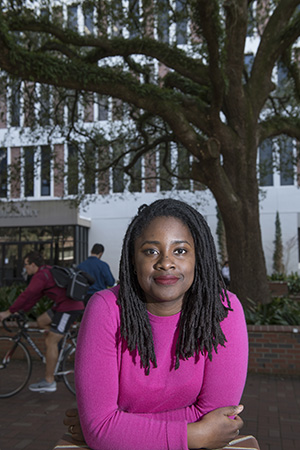
of History
“My research focuses on race, gender and labor in the 20th-century Spanish Caribbean,” she said. “My book manuscript is a history of domestic service — that is, the work of maids, cooks, nannies and gardeners, among others — in Cuba from the abolition of slavery to the 1959 Cuban Revolution.”
Associate Professor of Spanish José Gomariz, who has published extensively on Cuban literary and cultural studies and currently is at work on a book on the African diaspora in Cuba and the Caribbean, finds Cuba’s rich cultural and literary production artistically appealing and intellectually engaging.
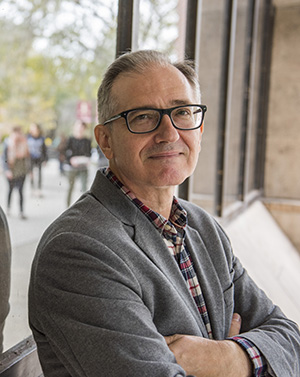
Department of Modern Languages and Linguistics
“Cuba offers an excellent illustration of how diverse cultures from the Caribbean, Europe, Africa and Asia, through times of conflict and difficult coexistence at first, but eventually, out of respect and recognition of their mutual humanity, have been merging over the centuries — a process that Cuban anthropologist Fernando Ortiz called ‘transculturation,’” Gomariz said.
“I’m interested in how peoples of African descent in the Hispanic Caribbean, who endured some of the most unjust conditions in human history, have been able to rise and emancipate themselves socially, economically and culturally, while making major contributions to expand the reach of democracy and to shape American multicultural identity.”
Wishing to bridge the interests of her colleagues and the undergraduate and graduate students working in the area, Murray-Román has organized a number of speaker series and created the Caribbean Studies Working Group, which fosters multidisciplinary conversation on current issues and provides a forum for presentation of research by faculty and advanced graduate students across the college. The group’s Facebook page is www.facebook.com/FSUCSWG.
“There are so many faculty and grad students at FSU in art history, education, English, dance, history, nursing, modern languages — and more — and I wanted to create a forum where we would be able to learn from one another’s expertise,” Murray-Román said of the working group. “And down the line, if we find points of strong connections between our areas of interest, some of us might collaborate on projects, share syllabi, and keep each other in mind when we’re all doing our own investigations. It’s just such a pleasure to hear about what our brilliant colleagues are working on, and it gives us a chance to ask for help with our projects and share our contacts and resources.”
Gomariz said there is keen interest in the Caribbean among both graduate and undergraduate students. The Spanish program has produced more than 10 doctoral dissertations on the Hispanic Caribbean in the last 15 years, especially about Cuba. Two doctoral students under his supervision are currently writing their dissertations on modern and contemporary Cuban studies, and some of his doctoral students have conducted research in Cuba, which he says offered them a unique opportunity to carry out a fruitful cultural exchange and to learn firsthand about the country.
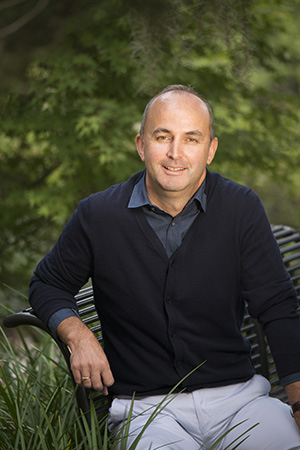
Winthrop-King Institute for Contemporary
French and Francophone Studies
“While our students study about Cuba and the Caribbean, they are learning about a region that, directly or indirectly, is also part of their own culture, as Floridians and Americans,” Gomariz said. “Oftentimes, their interest arises due to the fact that many of our students are of Cuban descent — first-, second- or even third-generation — or from other Caribbean nations, or have lived in places in Florida, where Cuban and Caribbean cultures are also part of urban life.”
As enthusiastic about his own area of expertise on Haiti is Martin Munro, an Eminent Scholar who directs FSU’s Winthrop-King Institute for Contemporary French and Francophone Studies. His research covers French literature and culture in the Caribbean, postcolonial theory and writing about the region’s disasters, including earthquakes and hurricanes. The institute regularly invites leading Caribbean writers, scholars and artists to campus and organizes conferences in the field.
“Haiti’s history is remarkable — from slavery and colonialism through the fight for freedom, independence in 1804, civil war, isolation by the European and North American powers, indebtedness to France, economic troubles and the long Duvalier dictatorships, with all the trials and tribulations they brought,” Munro said. “And still, indomitable, the spirit of the people stands, and a remarkably rich culture continues to express that spirit. What’s not to like!”
As our relationship with our southern neighbors continues to evolve, the region’s primary role in U.S. foreign and economic policy, and the growing numbers of U.S. citizens of Latin and Caribbean descent, underpin the importance of the area for academic study.
“We all live in the Americas,” Hicks said. “Since the birth of the United States, Latin American and Caribbean people have contributed to the formation of our national identity and vice versa. Ideas that we hold dear about democracy, freedom, and equality are grounded in the actions that North American, Latin American, and Caribbean people have taken throughout history to improve the circumstances of their own lives and the lives of others. These connections are perhaps clearer than ever in the 21st century, and impossible to miss in the state of Florida, but the ties that bind North Americans to the rest of the Americas have always existed. As a professor of Caribbean history, I see it as my job to point them out.”

